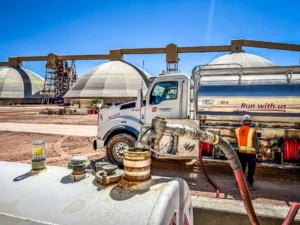
For decades, traditional point-of-sale (POS) systems have been the backbone of retail businesses. From ringing up sales to managing inventory, these systems have helped stores run smoothly. But in today’s fast-paced, digital-driven world, are they still the best option?
The rise of digital POS solution cloud-based, mobile-friendly, and packed with features, has changed the retail landscape. These systems promise faster transactions, better data insights, and the flexibility to sell anywhere. Many businesses are making the switch, but others remain hesitant.
So, is it time to ditch your old-school POS, or is the hype around digital POS systems just another tech trend?
How Digital POS Is Changing the Game
Digital POS systems are designed to do more than just process payments. They integrate seamlessly with other business tools, offering a level of convenience and efficiency that traditional POS systems simply can’t match. Here’s why so many retailers are making the switch:
1. Mobility and Flexibility
Traditional POS systems require a fixed checkout counter. Digital POS, on the other hand, allows businesses to process sales anywhere—whether in-store, online, or even at pop-up events. This flexibility is especially useful for retailers looking to expand beyond their physical stores.
2. Real-Time Data and Inventory Management
With a cloud-based POS system, inventory updates happen in real time. If a product sells out in-store, the online stock is adjusted instantly, reducing the risk of overselling. This is a game-changer for businesses managing multiple sales channels.
3. Faster and Smoother Transactions
Modern digital POS systems support multiple payment options, from credit cards and mobile wallets to buy-now-pay-later services. Customers expect quick, hassle-free transactions, and a slow checkout process can mean lost sales.
4. Better Customer Insights
A digital POS system doesn’t just process payments, it collects valuable data. Retailers can track buying patterns, identify best-selling products, and even personalise promotions based on customer preferences.
5. Easier Software Updates and Integrations
With a cloud-based POS,updates happen automatically, ensuring businesses always have the latest features and security patches. Plus, these systems can integrate with accounting software, CRM tools, and e-commerce platforms, creating a seamless business ecosystem.

Why Some Businesses Are Still Hesitant
Despite the advantages, not everyone is rushing to replace their traditional POS system. Here’s why some businesses are holding back:
1. High Upfront Costs
Switching to a digital POS system often requires new hardware, software subscriptions, and staff training. For small businesses operating on tight budgets, the initial investment can be a barrier.
2. Learning Curve and Staff Training
Employees who are used to traditional POS systems may find the transition challenging. Some business owners worry that training staff on a new system will take time and lead to errors during the adjustment period.
3. Dependence on Internet Connectivity
Most digital POS systems rely on cloud storage, meaning they require a stable internet connection. If the internet goes down, businesses could face delays or even be unable to process sales.
4. Security and Data Privacy Concerns
With everything stored online, some retailers worry about cybersecurity risks. While most digital POS providers implement strong security measures, the fear of data breaches still makes some businesses hesitant.
5. “If It’s Not Broken, Why Fix It?” Mentality
Many businesses have been using traditional POS systems for years without any issues. If the current setup is working fine, some retailers don’t see a strong reason to change.
Is It Time to Make the Switch?
There’s no one-size-fits-all answer. While digital POS systems offer incredible benefits, they may not be necessary for every business. If your current system is slow, outdated, or lacks the features you need to grow, it might be time to explore digital options.
However, if a traditional POS system meets your needs and upgrading would be more of a hassle than a benefit, there’s no harm in sticking with what works. The key is to evaluate your business needs, budget, and long-term goals before making a decision.
Final Thoughts
The future of retail is digital, but that doesn’t mean every business has to abandon traditional POS systems overnight. Digital POS solutions provide flexibility, real-time insights, and a smoother customer experience, making them a smart choice for many retailers. However, concerns about cost, security, and the learning curve still keep some businesses from making the leap.
At the end of the day, the best POS system is the one that helps your business run efficiently. If you stick with a traditional setup or embrace the digital revolution, the key is choosing a solution that works for you.








